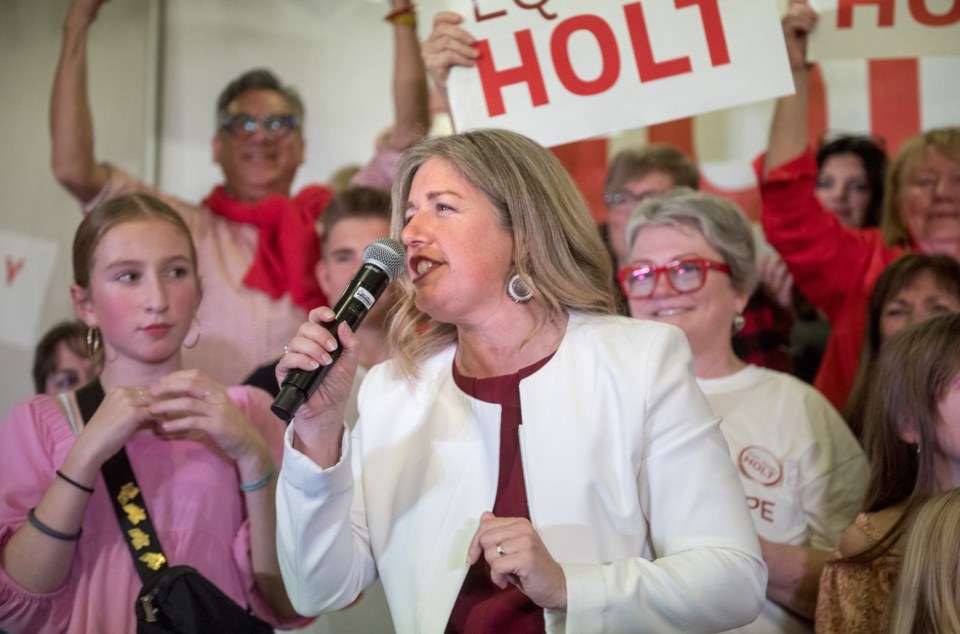FREDERICTON — Chief Allan Polchies is excited about New Brunswick's new Liberal provincial government. Polchies, of St. Mary's First Nation, said he looks forward to meaningful dialogue with premier-designate Susan Holt after years of tense relations with the outgoing Progressive Conservatives under Blaine Higgs.
"This is fantastic, knowing that we've got a government that is willing to work with First Nations, have a nation-to-nation relationship and understand the needs of all New Brunswickers, including the Indigenous people, of this beautiful province, the unceded and unsurrendered lands," he said in an interview shortly after the Liberal victory was confirmed.
He is one of six Wolastoqey Nation chiefs who in 2021 filed a legal action seeking title to a significant part of the province, arguing they never relinquished their lands to the Crown and their treaty rights have not been respected by corporations and governments.
The court case had been a sore point between First Nations and the Higgs government. Just days before Monday's election, Higgs dismissed the Wolastoqey position by saying New Brunswick was "ceded" land. "The basic fundamental premise is whether the land is ceded or unceded, and certainly we have evidence to say it ... was ceded back many, many years ago," he said.
On election night, Holt wore brown and white bead earrings from the Mi'kmaq First Nation of Pabineau. In an interview Tuesday, she said she wants to rebuild trust between the province and First Nations.
"Right now, we're trying to organize a swearing-in and a cabinet, and figure out who's going to be responsible for files like Indigenous affairs," she said. "And then I imagine in November, I will have a chance to meet with all of the chiefs of New Brunswick and start to rebuild the trust that's been broken."
The Wolastoqey chiefs want land returned and compensation for the use of that land over the last 200 years. In a February 2023 news release, eight Mi'kmaq communities also said they were "formally" asserting title to lands and waters in New Brunswick.
"Landowners in the province of New Brunswick do not need to worry. We are not looking at taking your homes, cottages or properties," Chief George Ginnish of Natoaganeg said in the news release.
"Our assertion of title is against the Crown and a small number of companies using industrial freehold lands in which the Crown still asserts an interest."
Chief Bill Ward of Metepenagiag said if the government was "unwilling to have meaningful discussion" about the Mi'kmaq title they would look at going to court. "Ideally, there will be a willingness from the provincial government to negotiate recognition and implementation of our title," he said.
In a social media post Tuesday, the Mi'kmaw First Nations said they hope to work with Holt and her team on "advancing issues that are important to our communities."
Polchies said he is looking forward to a relationship between the First Nations and the government where issues concerning Indigenous people such as health care, education, housing and security can also be discussed.
"I just want to say to all New Brunswickers, let's collaborate. We're all treaty people. And to the Wolastoqey people, let's move forward for a better tomorrow."
This report by The Canadian Press was first published Oct. 23, 2024.
Hina Alam, The Canadian Press



